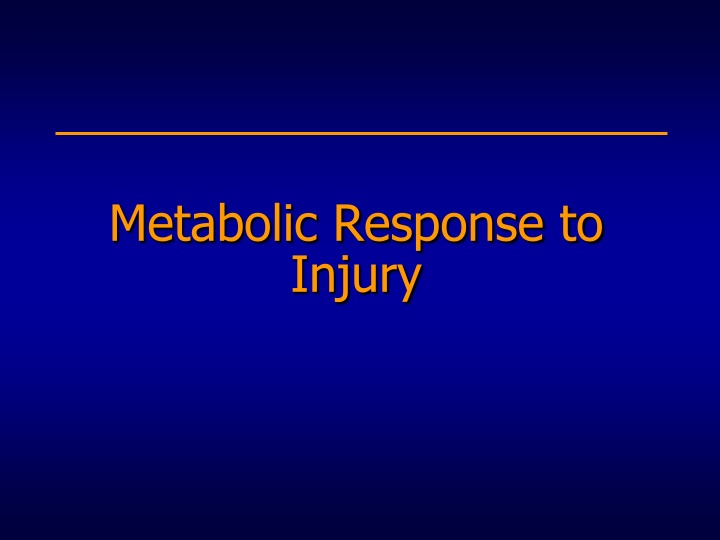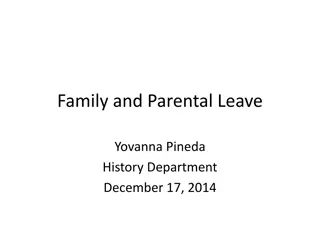Enhancing Parental Involvement for Student Success
In order to bridge the gap between educators, parents, and students, a new plan has been designed to provide free workshops and programs addressing various educational challenges and needs. By partnering with community organizations and offering workshops on topics like Google Classroom, parental portals, and stress-free homework help, the aim is to empower parents with the tools and resources to actively support their children's education. The inclusion of free childcare services and multilingual options ensures accessibility for all families.
Download Presentation

Please find below an Image/Link to download the presentation.
The content on the website is provided AS IS for your information and personal use only. It may not be sold, licensed, or shared on other websites without obtaining consent from the author.If you encounter any issues during the download, it is possible that the publisher has removed the file from their server.
You are allowed to download the files provided on this website for personal or commercial use, subject to the condition that they are used lawfully. All files are the property of their respective owners.
The content on the website is provided AS IS for your information and personal use only. It may not be sold, licensed, or shared on other websites without obtaining consent from the author.
E N D
Presentation Transcript
Metabolic Response to Injury
Objectives Factors mediating the metabolic response Consequences of the metabolic response The differences between metabolic responses to starvation and trauma The effect of trauma on metabolic rate and substrate utilization Modifying the metabolic response
Mediating the Response The Acute Inflammatory Response Cellular activation Inflammatory mediators (TNF, IL1, etc) Paracrine Vs endocrine effects
Mediating the Response The Endothelium Selectins, Integrins, and ICAMs Nitric Oxide Tissue Factor
Mediating the Response Afferent Nerve Stimulation Sympathetic Nervous System Adrenal Gland Medulla
Mediating the Response The Endocrine System Pituitary Gland (GH, ACTH, ADP) Adrenal Gland (Cortisol, Aldosterone) Pancreatic (Glucagon, Insulin) Others (Renin, Angiotensin, Sex hormones, T4)
Consequences of the Response Limiting injury Initiation of repair processes Mobilization of substrates Prevention of infection Distant organ damage
Metabolic Response to Fasting I II III IV V GLUCOSE UTILIZED (g/hora) 40 Exogenous Glycogen Gluconeogenesis 30 20 10 LEGEND I II III IV V GLUCOSE, KETONES GLUCOSE, KETONES FUEL FOR BRAIN GLUCOSE GLUCOSE GLUCOSE Ruderman NB. Annu Rev Med 1975;26:248
Starvation Early Stage Muscle Alanine / Pyruvate Brain Glucose Glutamine Gluconeogenesis Glycerol Ketogenesis Ketones Fat AGL Liver Ureagenesis Ketones Urea NH3 Kidney Intestine
Starvation Late Stage Muscle Alanine / Pyruvate Brain Glucose Glutamine Gluconeogenesis Glycerol Ketogenesis Fat Ketones AGL Liver Ureagenesis Ketones Urea NH3 Kidney Intestine
Metabolic Response to Starvation Hormone Norepinephrine Norepinephrine Epinephrine Thyroid Hormone T4 Source Sympathetic Nervous System Adrenal Gland Adrenal Gland Thyroid Gland (changes to T3 peripherally) Change in Secretion Landberg L, et al. N Engl J Med 1978;298:1295.
Energy Expenditure in Starvation 12 Nitrogen Excretion (g/day) Normal Range 8 Partial Starvation 4 Total Starvation 0 10 20 30 40 Days Long CL et al. JPEN 1979;3:452-456
Metabolic Response to Injury Ebb Phase Flow Phase Energy Expenditure Time Cutherbertson DP, et al. Adv Clin Chem 1969;12:1-55
Metabolic Response to Injury: Ebb Phase Characterized by hypovolemic shock Priority is to maintain life/homeostasis Cardiac output Oxygen consumption Blood pressure Tissue perfusion Body temperature Metabolic rate Cuthbertson DP, et al. Adv Clin Chem 1969;12:1-55 Welborn MB. In: Rombeau JL, Rolandelli RH, eds. Enteral and Tube Feeding. 3rd ed. 1997
Metabolic Response to Injury: Flow Phase Catecholamines Glucocorticoids Glucagon Release of cytokines, lipid mediators Acute phase protein production Cuthbertson DP, et al. Adv Clin Chem 1969;12:1-55 Welborn MB. In: Rombeau JL, Rolandelli RH, eds. Enteral and Tube Feeding. 3rd ed. 1997
Metabolic Response to Injury Fatty Acids Fatty Deposits Liver & Muscle (glycogen) Endocrine Response Glucose Muscle (amino acids) Amino Acids
Metabolic Changes after Injury Muscle Alanine / Pyruvate Brain Glucose Glutamine Gluconeogenesis Glycerol Ketogenesis Fat Ketones AGL Liver Ureagenesis Ketones Urea NH3 Kidney Intestine
Metabolic Response to Injury 28 24 Nitrogen Excretion (g/day) 20 16 12 8 4 0 10 20 30 40 Days Long CL, et al. JPEN 1979;3:452-456
Severity of Injury: Effects on Nitrogen Losses and Metabolic Rate Major Cirug a mayor Surgery Quemadura moderada a grave Moderate to Severe Burn Nitrogen Loss in Urine Sepsis grave Sepsis Severe Infecci n Infection Cirug a electiva Surgery Elective Basal Metabolic Rate Adapted from Long CL, et al. JPEN 1979;3:452-456
Comparing Starvation and Injury Starvation Trauma or Disease Metabolic rate Body fuels Body protein Urinary nitrogen Weight loss conserved conserved wasted wasted slow rapid The body adapts to starvation, but not in the presence of critical injury or disease. Popp MB, et al. In: Fischer JF, ed. Surgical Nutrition. 1983.
Modifying the Response Medication (before or after injury) Nutritional status Severity of injury Temperature Anesthetic technique
Summary Injury (Trauma or Surgery) leads to a metabolic response Metabolic response to injury is an adaptive response Metabolic response could overwhelm the body and lead to increased morbidity and mortality We can modify the metabolic response before and sometimes after injury
Metabolic Response to Injury Questions Questions























